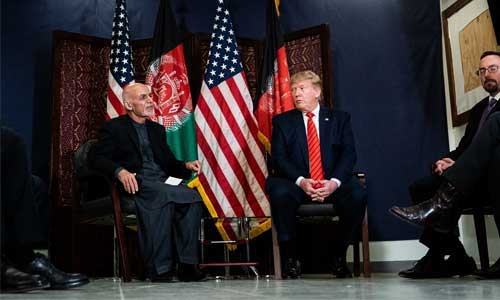American scholar, Walter Russel Mead, in his famous book – Special Providence: American Foreign Policy and How It Changed the World – considers the foreign policy of the US as one of the most successful that has prevailed over the period of almost two centuries. He argues that this success in US foreign policy can be attributed to four foreign policy traditions, which are named after four personalities in the US history: Himiltonianism, Wilsonianism, Jaffersonianism and Jacksonianism.
Hamiltonianism is linked to the tradition of US foreign policy propagated by Alexander Hamilton, the first US secretary of the treasury, and stands for the US interests in developing commerce and trade. Hamiltonians favor a strong alliance between the national government and big business as they consider it vital for domestic stability and effective action abroad. Primarily, they focus on the nation’s need to be integrated into the global economy on favorable terms. Hamiltonians have historically made attempts to ensure US government guarantees for the rights of American investors and have always realized the significance of the British world order for American interests. They have supported cooperation with Britain and they were among the earliest and strongest backers of the United States’ dominance and global role after the diminishing role of the Great Britain.
Wilsonianism is named after President Wodrow Wilson, that heralded world-changing political and moral ideals. Wilsonians believe that the US has both a moral obligation and an important national interest in disseminating democratic and social values pertaining to the American society throughout the world. They also propagate creation of a peaceful international community that pursues the rule of law.
Wilsonian traditions have largely been pursued by the Democrat presidents in the US. President Bill Clinton can be considered to be the practitioner of the Wilsonian tradition in US foreign policy because of its idealistic and liberal internationalism.
The tradition of Jeffersonianism is named after President Thomas Jefferson, who was the third US president and also the author of the American Declaration of Independence. The idea is deeply concerned with protecting democracy and human rights in the US. Jaffersonians believe that American foreign policy should not be concerned much about spreading democracy abroad, rather they must make efforts to safeguard it at home. They seem skeptical of Hamiltonian and Wilsonian policies that involve United States with unsavory allies abroad or that increase the risks of war.
The Jeffersonians are considered to have a Puritan instinct to promote democracy abroad but not at the expense of limited government and low taxes at home. The expression of this tradition can be found in the noninterventionism of the libertarian and Tea Party movements. This tradition was basically the guiding principle of the US presidents in the early days of the federation. The US survival and containment policies in the 19th century were based on the same tradition.
Jacksonianism is termed after President Andrew Jackson, that has a notion of “Us Against Them” and takes inspiration from patriotic fervor, a culture of honor and military pride. Jacksonians believe that the most important goal of the US government in both foreign and domestic policy should be the physical security and the economic well-being of the American people. Jacksonians believe that the US should not seek out foreign conflicts or wars, but when other nations start wars with the US, then ‘there is no substitute for victory’. In short, Jacksonians see the Second Amendment in the US constitution – the right to bear arms – as the citadel of liberty.”
These four traditions have been pursued by different US presidents at different times. However, it is vital to understand that they are not mutually exclusive and there are possibilities that one president’s policies may have the attributes of two or more than two traditions. Moreover, there are possibilities that the policies are altered by the US leaders as per the demands of the time.
The current US president, Donald Trump, can be considered to be a practitioner of some vital aspects of the Jacksonian tradition. Trump sees the world in terms of ‘Us’ (The distinct Americans) and ‘Them’ (The rest of the world), and has clearly stated that he wants to ‘make America great again’. His nationalist and anti-liberal policies can rightly be considered as the practice of Jacksonianism in US foreign policy. In his 2019 speech in UN General Assembly, he said: “The future does not belong to the globalists. The future belongs to the patriots.” Moreover, his administration’s anti-immigrant policies, particularly towards Muslims, have depicted the same approach.
What does such foreign policy approach mean for Afghanistan? It means that Trump administration is more inclined in restoring the ‘US glory’ and not impressed by liberal efforts like ‘nation-building’, ‘state-building’ or ‘peace-building’ efforts in a third-world country like Afghanistan. Therefore, there have not been serious efforts in the last few years in Afghanistan in such domains. Though there have been peace-building efforts, they are mostly temporary arrangements to make people believe that Trump administration is more inclined towards ending the ‘alien war’ in Afghanistan. Such temporary arrangements will neither result in a stable political system in the country, nor a lasting peace that can save the people of Afghanistan from decades of war and insecurity.
Home » Opinion » US Foreign Policy Traditions
US Foreign Policy Traditions
| Sajjad Aasim

